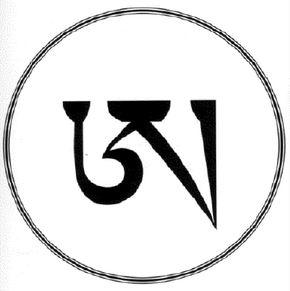 Dzogchen: Four introductory texts on Dzogchen – These books are meant as introductions to the Mahayana Buddhist system know as Dzogchen. There are indications that Dzogchen is a practice that is hundreds of years older than Buddhism itself, but it has been incorporated as advanced techniques into the practices of Tibetan Buddhism. The four books are from the Berzin Archiches, you might want to check it out. Download the free PDF ebooks here:
Dzogchen: Four introductory texts on Dzogchen – These books are meant as introductions to the Mahayana Buddhist system know as Dzogchen. There are indications that Dzogchen is a practice that is hundreds of years older than Buddhism itself, but it has been incorporated as advanced techniques into the practices of Tibetan Buddhism. The four books are from the Berzin Archiches, you might want to check it out. Download the free PDF ebooks here:
 The Major Facets of Dzogchen
The Major Facets of Dzogchen
 Introduction to Dzogchen
Introduction to Dzogchen
 Fundamentals of Dzogchen Meditation
Fundamentals of Dzogchen Meditation
 Brief History of Dzogchen
Brief History of Dzogchen
What is Dzogchen?
Dzogchen, also known as the “Great Perfection,” is a tradition of teachings within the broader scope of Tibetan Buddhism. It represents the pinnacle of spiritual development in the Nyingma school, the oldest of the four main schools of Tibetan Buddhism, but elements of it are also present in other Tibetan Buddhist traditions. Dzogchen emphasizes the direct realization of the natural, primordial state of being, which is described as the ultimate nature of reality—beyond dualistic concepts and intellectual understanding.
The practice of Dzogchen involves meditation techniques that aim to reveal this innate perfection without the need for elaborate rituals or study. Practitioners are guided to recognize and sustain the natural state of mind, which is characterized by spaciousness, clarity, and awareness untainted by ordinary mental activities and afflictions.
Central to Dzogchen teachings is the distinction between two truths: the absolute truth, which is the undifferentiated reality beyond concepts, and the relative truth, which includes the phenomena of the conventional world. Dzogchen teachings and practices aim to bring practitioners to a direct experience of the absolute truth, transcending the limitations of ego and duality.
The Dzogchen tradition has been transmitted through a lineage of masters and disciples, starting from primordial Buddhas and continuing through historical figures such as Garab Dorje, who is considered the first human teacher of Dzogchen. Its teachings are encapsulated in texts known as terma (hidden treasures) and pecha (transcribed teachings), which have been revealed and preserved over centuries.
While Dzogchen is deeply rooted in Tibetan Buddhist philosophy and practice, its universal message of intrinsic purity and unity has attracted interest worldwide, contributing to its practice beyond traditional Tibetan Buddhist communities.

Thanks for these material. Great work
Thank you very much for your list of the four texts on dzogchen.
I have downloaded the introduction to dzogchen and from first glance I have found it to be extremely useful and informative.
I am glad to hear. Enjoy :-)
Admin